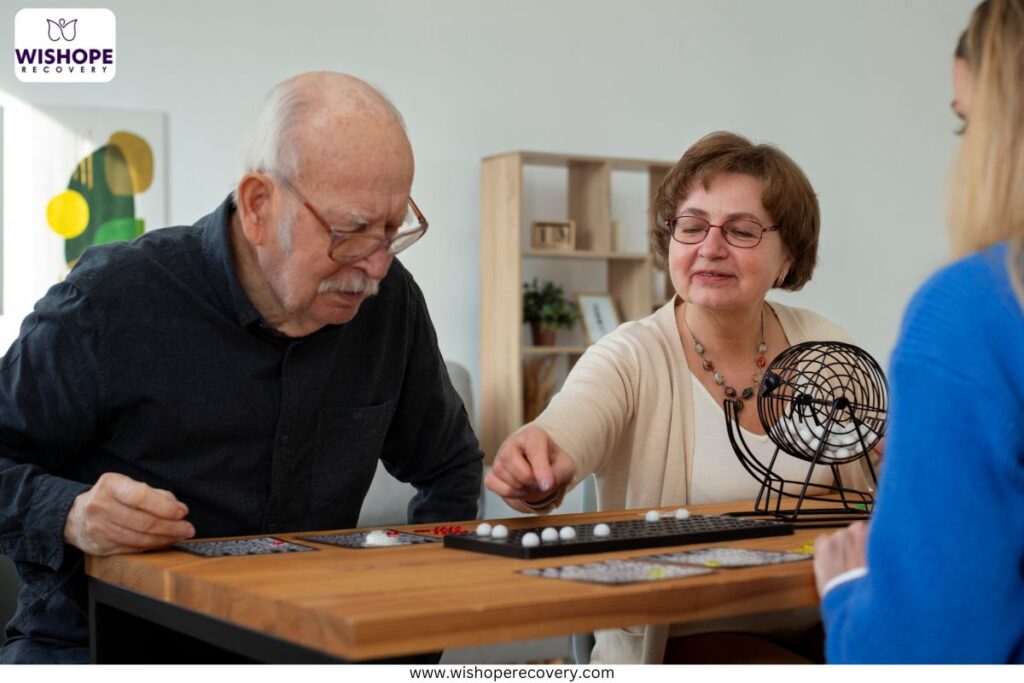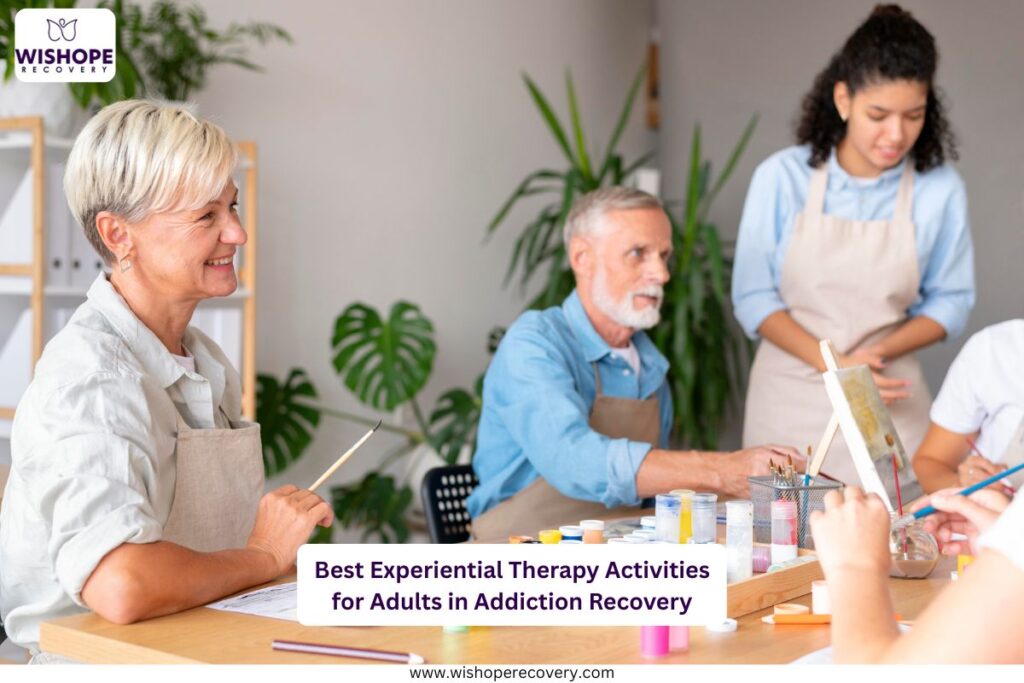Addiction recovery is not simply a personal journey, but an emotional journey, too. Beating addiction cannot be accomplished through talk therapy only, and its important to realize that healing is more than talk: it is connecting with your mind, body, and emotions. At WisHope Recovery, we believe that experiential therapy offers adults in recovery a meaningful, real world activity when they can process those feelings, and allow them to grow and obviously eventually develop a different way of coping with life!
There are also many benefits of using activities to help convey the importance of an individual’s emotional well-being. The experiential relationship can form trust, help individuals understand their emotions, hopefully create a new relationship to responding to life. In this article, we will outline the most beneficial experiential therapy activities for adults, and we will also discuss how evidenced based experiential therapy activities contribute to the addiction recovery process, how to do them, and hopefully answer a burning question or two.
How Experiential Therapy Activities Help in Recovery From Addiction
Experiential therapy Activities for Adults involves active techniques that allow people to experience their emotions in ways that are sometimes too difficult to communicate in words. Here are just some of the ways that these activities enhance recovery from the problem of addiction:
- Emotional Expression – Facilitates healthy expression of feelings and inhibit emotions.
- Trauma Processing – Assists individuals in grappling with and working through past experiences that serve the basis for their addiction.
- Self Discovery – Promotes awareness of personal triggers and emotional needs.
- Stress Reduction – Creative and physical experiences can minimize anxiety and tension levels.
- New Coping Skills – New, healthy responses to emotional triggers.
- Building Relationships – Builds trust and connection to therapist, peers, and family.
- Empowerment – Engenders sense of control over own recovery journey.

Top Experiential Therapy Activities for Adults
At WisHope Recovery, we offer many types of experiential activities that lend themselves to healing and emotional change:
- Art Therapy – Painting, drawing, or sculpting, in order to express and examine feelings without words.
- Psychodrama & Role-Playing – Reliving part of the experience in an effort to assist you to work through the occurrence and gain closure.
- Equine Therapy – Working around horses, promotes emotional awareness, empathy, patience, and trust.
- Outdoor Adventure Therapy – Hiking, camping, and team building challenges in an effort to increase confidence.
- Yoga and Mindfulness Practices – For heightening self-awareness and regulation of emotional responses.
- Music Therapy – Finding and relaxing into the rhythm with measure and sound.
- Journaling and Creative Writing – A means of working through thoughts and feelings in a safe way on paper.
- Sand Tray Therapy – With symbolic play to reveal unconscious emotional and belief constructs.
How to Practice Experiential Therapy
Experiential therapy can be experienced successfully with the help of a trained therapist. The following provides a general structure of how to go about completing these activities:
- Create a Safe Space – It is important to provide a judgment-free supportive environment.
- Define Emotional Goals – Choose what feelings or experiences you want to explore.
- Choose an Activity – Use an activity suited to your level of comfortability.
- Complete the Activity – In the moment, pay attention to the emotions, feelings, etc. that arise while completing the activity.
- Articles reflection and Discussion – Share your experiences with a therapist who can help you to understand the experience in a different way.
- Use Learnings to Recover – Use what you learn from the activity to develop a healthier coping mechanism.

Frequently Asked Questions
- Who benefits most from experiential therapy?
Experiential therapy can assist anyone dealing with addiction, trauma, anxiety, depression, or emotional dysregulation; however, it is most common among adults. - Does one have to be a draw-and-paint type or an athlete to participate in an experiential therapy activity?
Not at all! These activities are meant to promote the exploration of emotions, feelings, and so forth, and they don’t require skill or performance. - Have you ever been told that experimental therapy would take the place of traditional therapy?
No, an experiential therapy is not to replace any other forms of therapy nor any type of talk-oriented therapy. Recovery efforts are on balance with multiple treatment modalities. - How often should these activities be held?
The frequency of activities is based on the individual needs of a client, but for some structured programs, it is common that activities and interventions occur once weekly. - Is experiential therapy evidenced-based?
Yes, the data do show that such interventions help persons in processing trauma-aiding development of emotional regulation skills that promote more profound long-term recovery.
Conclusion
The recovery philosophy at WisHope dictates that healing occurs when an individual is able to explore and express feelings in a supportive and safe atmosphere. Experiential activities offer adults in addiction recovery strong channels for self-realization, building resilience, and creating a purposeful journey to long-term healing.
For details regarding our experiential therapy offerings, call WisHope Recovery now, whether you or a loved one seek a whole approach to addiction.

